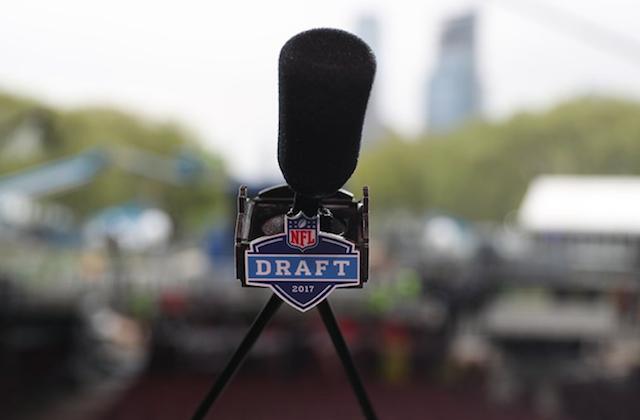READ: Inside The NFL's Racial Politics

Today (April 27) marks the first day of the National Football League (NFL) Draft 2017, where teams vie for the best recruits to buildout their rosters for the coming season. As college players across the country prepare to hear their names called on the big stage, The Undefeated delves into the racial politics that determine where they will end up.
Published today, “The NFL’s Racial Divide” posits that while meritocracy rules the game on the field, long-held racial beliefs control who makes it there:
In Never Give Up on Your Dream: My Journey, [Warren] Moon, the only African-American quarterback inducted into the Pro Football Hall of Fame, chronicles the racism he encountered in the game. Most black players of his generation—and definitely those who came before Moon—could tell similar disheartening stories. Repeatedly pushed to move to another position by coaches who assumed he lacked the smarts to play the most important one in sports, Moon, believing he had the chops to lead, well, never gave up.
“You have to look at the history of pro sports in this country to understand how slowly things changed in the NFL with certain positions,” said Moon, who went undrafted out of college and received an opportunity to play quarterback in the NFL only after he obliterated passing records and won multiple championships in the Canadian Football League. “In football, the ‘thinking’ positions down the middle—quarterback, center, [inside] linebacker—were the ones that we weren’t allowed to play. … Supposedly, we weren’t smart enough or had the leadership qualities or whatever it took. At every position, for African-Americans, conquering that myth at quarterback was so important.”
The Institute for Diversity and Ethics in Sport reported in September that 69.7 percent of the players in the NFL are Black, 27.4 percent are White, 1.9 percent are Asian, 0.8 percent are Latinx and 0.2 percent are “other.” But as writers Jason Reid and Jane McManus go on to explain, that split is not reflected in the filling of positions.
{{image:2}}
They talked to writer Malcolm Gladwell to break down the issue:
What football has, explained best-selling author Malcolm Gladwell, is a sorting problem. The author of Outliers: The Story of Success and The Tipping Point, Gladwell, widely praised for his innovative approach to sociology, offers an analogy that might help to make sense of what is happening on a football field. If you lined up all of Barack Obama’s presidential predecessors on the 50-yard line at Lambeau Field, Gladwell said, you might see something similar at play. With few exceptions, American presidents have been white men, in late middle age and taller than 5-feet-10. “Viewed statistically it’s absurd,” Gladwell said. “Why would you limit your search for the most important job in the land to this tiny group of people? But it’s an incredibly common thing. We do a category selection before we do individual analysis.”
To imagine how this might work in football, the historian Oriard posited that coaches might not know who exactly they want to sign at wide receiver, but they probably have a few examples in their minds of who is the best in the role—let’s call him a prototype. Calvin Johnson, who is black, fits the bill for a deep receiver, and maybe Wes Welker, who is white, in the slot. When we make comparisons between people, race tends to be one of the factors that correlates. So during that initial sorting process, a down-field wide receiver such as Eric Decker, who’s also white, might not initially seem to fit the category that Johnson holds as prototype. And what is the NFL draft if not the league’s annual sort? These evaluations “start from a semi-rational place, but it has the effect of substituting a category for individual evaluation,” Gladwell said. “And we all do this all the time and it’s useful, but it means you leave a ton of talent on the floor.”
Read the full story—including experts’ proposed solutions—here.
